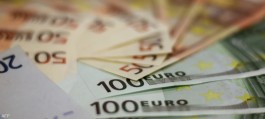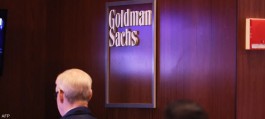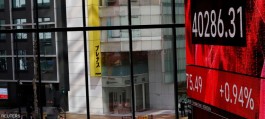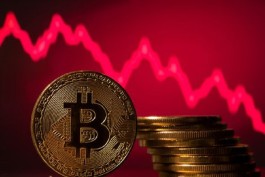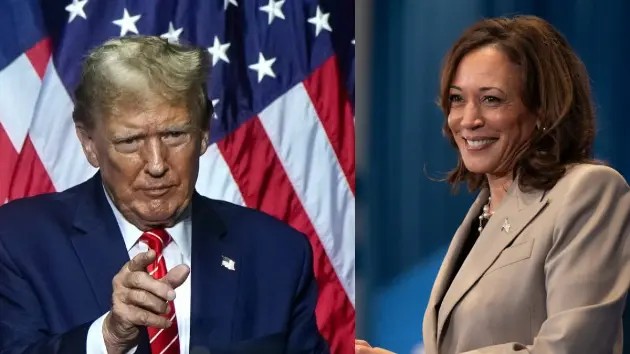Economic circles and financial markets in the United States are anticipating the US presidential elections scheduled to be held this year in November, and the extent to which these elections and their results will impact Wall Street, especially in light of the multiple and different scenarios of impact.
The upcoming elections will see the current US Vice President Kamala Harris from the Democratic Party and former President Donald Trump from the Republican Party competing, which will coincide with the beginning of an era that may witness the US Federal Reserve heading towards a period of easing monetary policy, and the possibility of revealing a slowdown in the US economy, which will create a complex and compounded impact of these factors on the US stock market.
4 scenarios according to the election results
Among the recently released forecasts for the impact of the presidential election on US financial markets are four scenarios UBS is predicting for what could happen to stocks, after Harris' candidacy prompted the bank to update its forecasts after it offered a similar analysis in March when President Joe Biden was still in the race, according to Business Insider.
1- Harris wins with a divided Congress
UBS sees a 40% chance of Harris taking the Oval Office, with Congress divided.
This scenario would have little impact on stocks, boosting companies focused on renewable energy and energy efficiency. The bank expects the Inflation Reduction Act’s beneficiaries to rise, while the regulatory burden could drag down fossil fuel companies.
UBS said strict regulation could also limit the financial sector, as Harris would maintain an anti-big-money ideology. Biden has called for tighter oversight since the collapse of Silicon Valley Bank in March last year.
At the same time, Congress will limit Harris's ability to push through key legislation, such as industrials and health care.
2- Trump wins as Republicans sweep Congress
If Harris doesn’t win, UBS sees a 35% chance of Republicans winning Congress and the White House. When Biden was still running, that was the most likely outcome, the bank previously forecast.
In this case, Trump would face fewer constraints in implementing announced policies, such as his pledge to raise tariffs and extend the 2017 corporate tax cuts.
UBS expects regulation to ease in this scenario, while M&A activity is likely to pick up. These factors will help support fossil fuel investment and would be the best-case scenario for financial institutions.
That makes the Republican sweep slightly positive for stocks, although the bank expects Trump's other proposals to offset the market's initial excitement.
For example, many economists have expressed concern about higher tariffs, arguing that higher tariffs could spur inflation. Trump has repeatedly dismissed these warnings, instead calling for a global tariff on all U.S. trade and a 60% tariff on imports from China.
In this case, the bank expects interest rates and the dollar to rise. Higher tariffs could also affect the technology sector, especially hardware and semiconductor companies.
The bank pointed to the potential negative health care impacts of Trump's proposals, such as plans for an international drug pricing index.
3- Harris wins as Democrats sweep Congress
UBS sees a 15% chance that Democrats will secure both branches of government. If that happens, it would be the worst outcome for stocks, according to the note.
This scenario would be somewhat negative for the market, as investors can expect the 2017 tax cuts to expire, while regulations will tighten. Financial companies and fossil fuel companies are expected to be hit hard, leading to higher costs in both industries.
Some efforts could be made to expand bargaining power over drug prices. At the same time, the estate tax could rise, along with restrictions on state and local tax deductions.
Overall, lower growth would push interest rates lower, as deflation continues.
4- Trump wins with a divided Congress
This is the least likely outcome, which UBS expects with a 10% chance of happening.
Under this scenario, the stock market impact would be volatile. And as with a Republican sweep, tariffs would still bring inflationary pressures and a stronger dollar, pushing interest rates up modestly.
Investment spending could slow for industries as uncertainty grows around green energy initiatives, the bank said.
At the same time, UBS expects the regulatory burden on the fossil fuel sector and the financial sector to ease somewhat, with the financial sector benefiting from new appointments to the heads of regulatory agencies such as the Fed, the Federal Deposit Insurance Corporation and the Securities and Exchange Commission.
Financial markets expected to benefit regardless of winner
One of the expectations regarding the impact of the election result on Wall Street markets is what was revealed by the research firm Ned Davis Research in a recent note, which is that the elections are expected to benefit the stock market, regardless of who wins, whether it is Trump or Harris.
The company said that the economic proposals of both Democratic candidate Kamala Harris and Republican candidate Donald Trump would stimulate the economy.
Based on the annual average of these limited assessments, both Harris and Trump would increase the budget deficit by about $220 billion to $650 billion annually, which would stimulate economic growth, according to Business Insider.
Combined with expected interest rate cuts from the US Federal Reserve, this stimulus could create a risk-on environment in the stock market through 2025.
Some of the key stimulus proposals from the Harris camp include extending the 2017 Tax Cuts and Jobs Act tax cuts for families making less than $400,000 a year, increasing the child tax credit to $3,600 per child and $6,000 per newborn, and eliminating income taxes on tips.
For Trump, economic stimulus proposals include extending the 2017 Tax Cuts and Jobs Act tax cuts for all, increasing the child tax credit to $5,000 per child, and eliminating income taxes on Social Security benefits for seniors. Trump also calls for eliminating income taxes on tips.
These potential measures from Trump or Harris would stimulate the economy, adding to the hundreds of billions of dollars in stimulus that is set to boost the economy thanks to laws already enacted during the administration of current President Joe Biden.
Such stimulus would combine with other government spending already in place from Biden’s signature laws, including the Infrastructure Investment and Jobs Act, the Inflation Reduction Act, and the CHIPS Act, which are set to provide an estimated $357 billion in direct government spending through 2031, Dimitrova said.
“Regardless of who wins the election, this means tailwinds for economic growth and stock markets in 2025,” she added.
According to the note, a weaker US dollar is also likely next year, especially if the US deficit grows further. A weaker dollar tends to be positive for corporate earnings and US stock prices.
While trillions of dollars in potential stimulus may be great for the economy and the stock market, it could also lead to another spike in inflation.
This is especially true if Trump's sweeping tariff proposals, or Harris's measures to combat price gouging, are enacted, Dimitrova said.
Despite what was announced during the presidential campaigns, these measures are still all proposals, and their passage into law depends on which party wins Congress.
Ultimately, the composition of Congress, which may also change in this election, will determine the feasibility of these proposals and could act as a check on spending and tax changes, Dimitrova said.

















